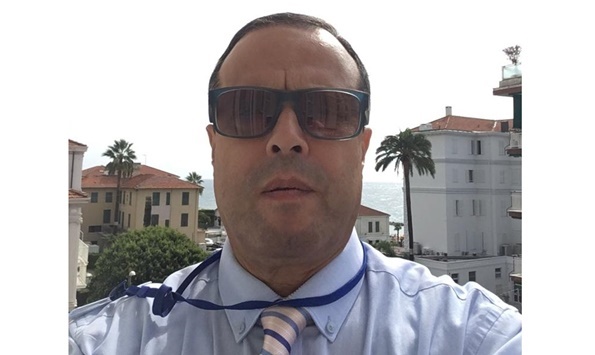The FIFA World Cup Qatar 2022 has achieved the unity of the Arab people, and proved that it is their meeting place," Qatar Press Center president Saad Mohamed al-Rumaihi said.
He was speaking on the sidelines of a panel discussion on the 'Western campaigns against Qatar and the Arab countries, organised by Qatar Press Center (QPC) in co-operation with Qatar News Agency (QNA) on Sunday.
"Today, the entire Arab world, east and west, north and south, stands behind the Moroccan national team. They all support the Lions of the Atlantic and hope that the Moroccan national team will reach the final matches and outperform the French national team in the next match," al-Rumaihi said.
"I see it as a new awakening of the Arab-Islamic culture. Yes, we are emotional by nature, we stand behind every Arab achievement. The great effort made by the Qatari media, whether newspapers, radio or TV, with the Arab sports satellite channels, did a great and a wonderful job regarding the daily files presented,” the QPC president stated.
QPC vice president and Gulf Times Editor-in-Chief Faisal Abdulhameed al-Mudahka, who moderated the panel discussion, explained why that there has been so much negative propaganda against Qatar in the run up to the World Cup.
“There are three reasons, one is racism, second is hate, and third orientalism and the perception of the stereotype about Arabs and Muslims in general, the Ghotra (headgear), Islamophobia, the perception fed by Hollywood, ancient travellers, led to this.
"Now the question is about what the World Cup did to this false perception, it has changed the whole perception of the Arab world, not only Qatar. This is what Qatar was aiming for, in terms of generosity, hospitality, culture, and that this is the land of civilisation, the land of most prophets who are from this region. It’s a total change, the image of the Arab after the World Cup is going to be different from that before the World Cup,” al-Mudhahka stressed.
Dr Tarik M Yousef, director of Middle East Council for Global Affairs, told Gulf Times on the sidelines of the panel discussion that “one of the unexpected outcomes of hosting the World Cup in Qatar, was the melting pot of cultures. It went a long way in promoting understanding, respect, facilitated curiosity and brought together peoples who normally, because of geography, would not connect with one another, and would not be familiar with one another, and may have been influenced by the wrong image.
"What the World Cup did was to really in many ways demonstrate the power of football when it is allowed to do precisely that: promote cultures, promote diversity, understanding and curiosity, and allow people to come together to celebrate, and to tolerate one another.”
Nazim Bessol, member of the executive office of the International Sports Press Association - Africa region, told Gulf Times in a statement about the false image disseminated by some Western media: “I think it's not new it's old, it's a concept that has existed since the end of the 18th century, beginning of the 19th century where the representation of everything outside the European borders is perceived like a retrograde world and that's what justified the unjustifiable.
"We remember the civilising missions of the populations that were considered as indigenous and that were treated like less than nothing. Perhaps in the collective unconscious this idea remains despite the passing years and centuries. In the end, when we discuss with people and especially with many colleagues who came to cover the World Cup, their level of amazement is commensurate, I believe, with the ignorance of this region.and these countries and perhaps beyond them.
"I am Algerian but it happened to me in France where I lived, while discussing with people who asked me sincerely and not to insult (about Qatar), are there camels, palm trees, is it like Algeria? It is really the postcard of the current of the time that some kept and entrust to the 21st century.
"So when there is this representation that remains over time and the mass media work not to correct it but to maintain it. Only when people arrive here in Doha, the first contact can be the first means of transport is the metro, and they all agree that this metro is something they have never seen, I have a colleague who said it's not a metro, it's a business class plane. So you imagine if you arrive with preconceived ideas and you find a plane instead of a metro, there's something that's not working. So it's this mindset there and then maybe the refusal to know more. "Whether we like it or not there are cultures of countries which are dominant and which work to propagate if it is not a false image of the countries or regions in question it is an image of their culture or their countries themselves by making people believe that they are “at the top” I think that is the main explanation.” Bessol concluded.

Faisal Abdulhameed al-Mudahka

Dr Tarik Yousef

Nazim Bessol

Saad al-Rumaihi

